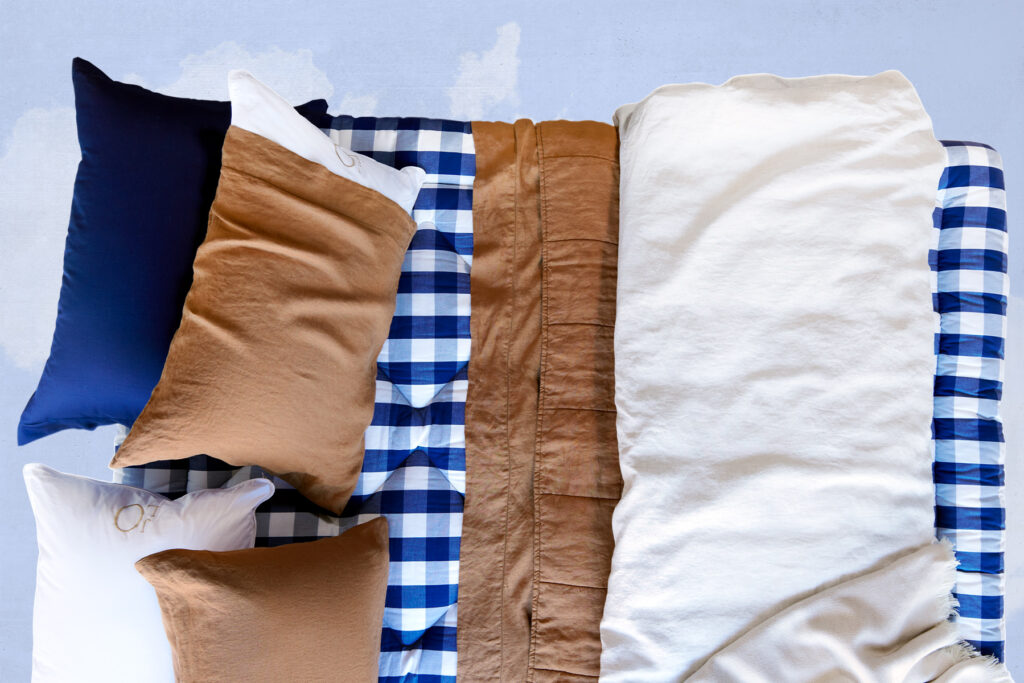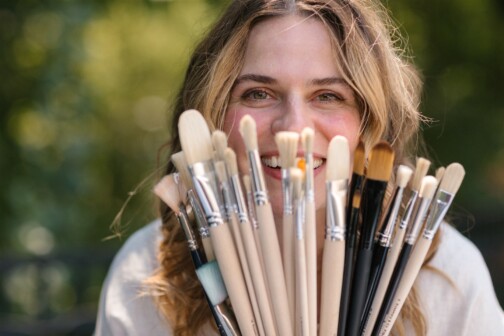It’s time to reconsider your bedding—and we don’t mean thread count. “We spend so much time evaluating our beauty, fashion, and food choices, but oftentimes, we don’t think twice about the environmental and social impact of our home decor choices,” says Carly Nance, co-founder of Dallas-based, ethically minded home goods brand, The Citizenry. She sheds light on how to buy and launder your linens responsibly—so you can sleep well at night.
Do Your Research
Find out who’s behind the products you purchase and how they’re making them. All of the bedding, furniture, and accessories carried by The Citizenry, for instance, meet the highest sustainability and fair-trade standards. When it comes to bedding, look for Oeko-Tex and GOTS (Global Organic Textile Standard) certifications. “These mean the bedding was made in the most sustainable way possible, with all organic materials,” Nance says.
Shop Smart
The choice of bedding material is a highly contested, but ultimately personal, one. Nance says when shopping for linen sheets—a popular choice for warm months, thanks to its natural temperature-regulating properties— it’s the weight of the fabric (measured in grams per square meter, or GSM) that makes the difference. “Typically, you want your GSM to be between 150–190,” she says. “Linen bedding with a low GSM will be very lightweight and more breathable, while sheets with a higher GSM will be thicker and more durable.” Also of note: Whether the linen has been stonewashed, a technique used to soften the material.
For cotton bedding, yes, thread count matters. Nance says of the much-discussed measure, which refers to how tightly woven a fabric is and typically ranges between 200 and 600, “In general, higher thread counts will be softer and more durable.” But the type of cotton used is just as important: “When possible, opt for long-staple cotton,” which will be softer and less prone to wrinkling, pilling, and fading than short-staple counterparts, she says.
Handle With Care
Nance recommends washing linens every week to two weeks in cold or lukewarm water, which is more eco-friendly and reduces material wear and color fading. Use a mild, organic detergent that’s free of chemicals, which can “irritate your skin, damage bedding over time, and pollute the environment.” Tumble dry on a low heat setting and use wool dryer balls for a fluffy finish.
Dare to Spare
Give your sheets a break when possible. “Investing in at least two sets will extend the life of your bedding by reducing the amount you are washing it,” Nance says.







